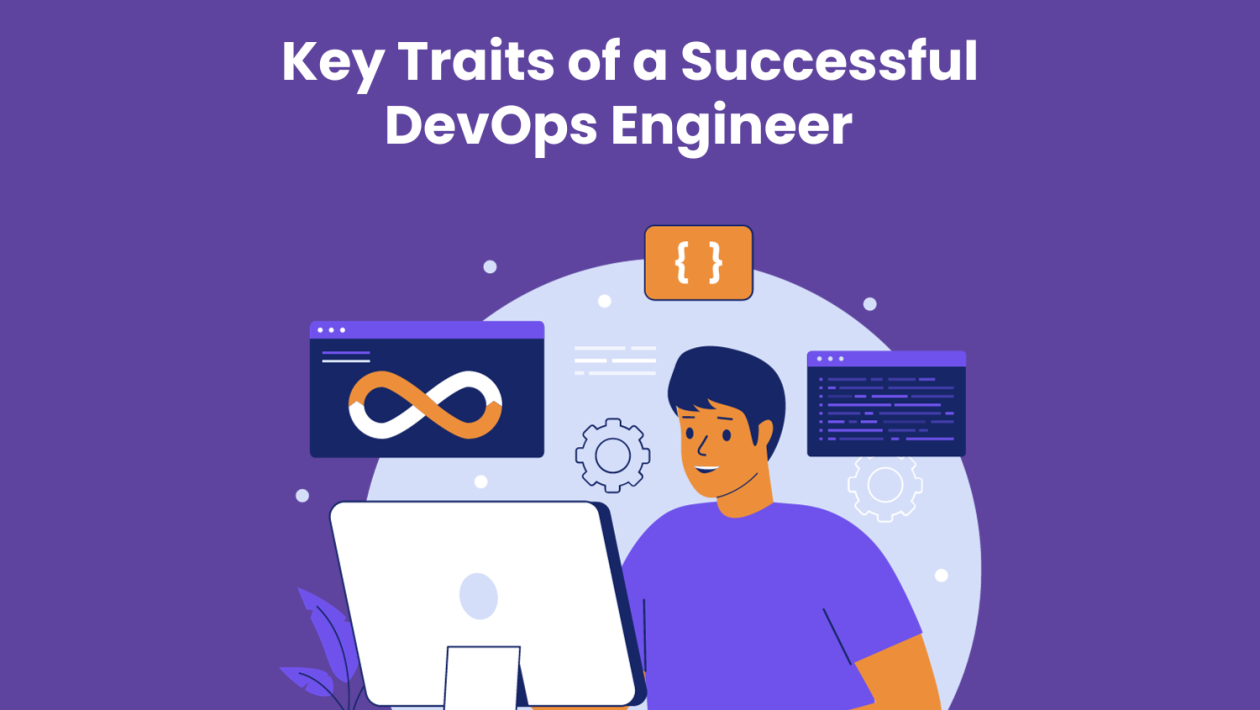The importance of a DevOps Engineer’s work has grown in software development. Skilled DevOps experts are in high demand due to organisations’ increasing need for shorter deployment cycles and more efficient operations.
To be a great DevOps Engineer, you must know How to Become a DevOps Engineer and what it takes to succeed in this industry. You can establish a solid foundation for a successful career in DevOps engineering by acquiring this expertise, taking specialised DevOps Courses, and following a defined path.
Embracing a Culture of Collaboration
DevOps places a great emphasis on fostering collaboration between development and operations teams, with the goal of improving the overall efficiency and effectiveness of software development processes. A successful DevOps Engineer must excel in working within cross-functional teams, breaking down silos, and promoting a unified approach to project goals. They should communicate effectively with technical and non-technical stakeholders to ensure alignment and understanding across the board.
Technical Proficiency and Continuous Learning
A DevOps Engineer must have an extensive technical background. This necessitates knowledge of system administration, scripting, coding, and technologies like Ansible, Docker, Kubernetes, and Jenkins. A successful DevOps Engineer, nevertheless, is defined by their dedication to lifelong learning. Keeping abreast of the most recent developments in DevOps is essential, as the field is dynamic and ever-evolving. Getting certified or enrolling in advanced DevOps courses might help a lot with this.
Automation and Process Improvement
At the core of DevOps is the concept of automation. A successful DevOps Engineer needs to possess a sharp eye for seeing repetitive jobs and processes that may be automated. This will allow for increased productivity while also minimising the likelihood of mistakes occurring.
For this purpose, it is not enough to just apply automation technologies; one must also have a comprehensive grasp of the process to optimise and simplify operations.
Strong Problem-Solving Skills
Dealing with deployment problems, system breakdowns, or security breaches puts DevOps Engineers under pressure. Strong problem-solving abilities are necessary to swiftly identify problems, find solutions, and reduce downtime and impact on the company. The capacity to think clearly under duress and an in-depth familiarity with the existing systems are prerequisites for this.
Security and Compliance Awareness
Given the current environment, a DevOps Engineer must possess a strong understanding of security concepts and compliance needs to thrive in the field. If we want our apps and infrastructure to be safe, dependable, and efficient, we must incorporate security into the DevOps process, also called DevSecOps.
Adaptability and Resilience
Because of DevOps activity’s dynamic and agile nature, engineers must be flexible and able to bounce back quickly. They should be at ease when things like procedures, technology, and project requirements are subject to quick change. They can swiftly adapt to new threats or changes in company strategy because of their agility.
Customer-Centric Mindset
The customer is the first priority for a good DevOps Engineer. By putting the consumer’s needs first, we can guarantee that all technological choices and procedures will lead to an optimal user experience. To create and implement solutions that fulfil or surpass client expectations, it is essential to understand their requirements and expectations.
Mastery of Cloud Technologies
Cloud computing expertise is becoming more important for DevOps Engineers as more and more businesses rely on these services. This involves being familiar with cloud-native development practices, knowing how to exploit the cloud for robust and scalable systems, and being knowledgeable about various cloud platforms such as AWS, Azure, and Google Cloud.
Strong Project Management Skills
It is common for DevOps Engineers to juggle many projects and activities at once. The ability to set and achieve realistic priorities, work under pressure, and finish projects on time and within budget requires solid project management abilities. Managing risks and being able to foresee and address problems before they worsen are also part of this.
Versatility in Tool Mastery
Many different kinds of resources and software are part of the DevOps ecosystem. An engineer’s tool repertoire should be extensive, and they should be comfortable with a variety of operating systems and applications. Because of their adaptability, they can choose the right tools for the job, which boosts their productivity.
Capacity for Empathetic Leadership
Leadership in DevOps is more than just managing. It calls for empathetic leaders who can read and react to team dynamics in a way that promotes development, education, and appreciation for one another. This quality is essential for leading groups through difficult times and complicated initiatives.
Conclusion
Becoming an effective DevOps Engineer requires technical expertise, a thirst for knowledge, and character traits such as critical thinking, creative problem-solving, and teamwork. Important first steps include enrolling in in-depth DevOps courses and keeping up with industry news, trends, and best practices. An expert DevOps Engineer is invaluable to any company because of the positive impact they can have on productivity, creativity, and growth as the go-between for software engineering and information technology operations.

